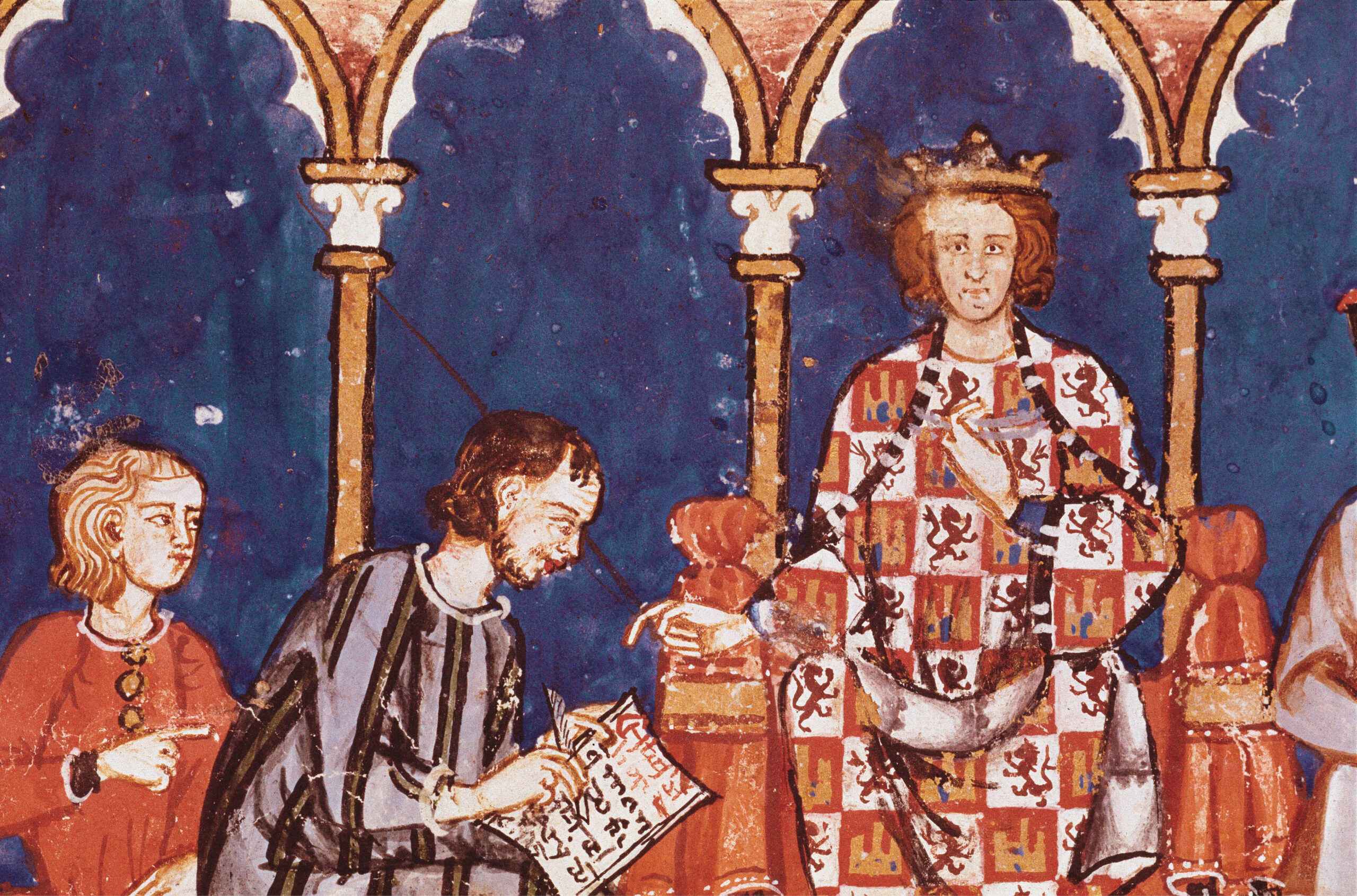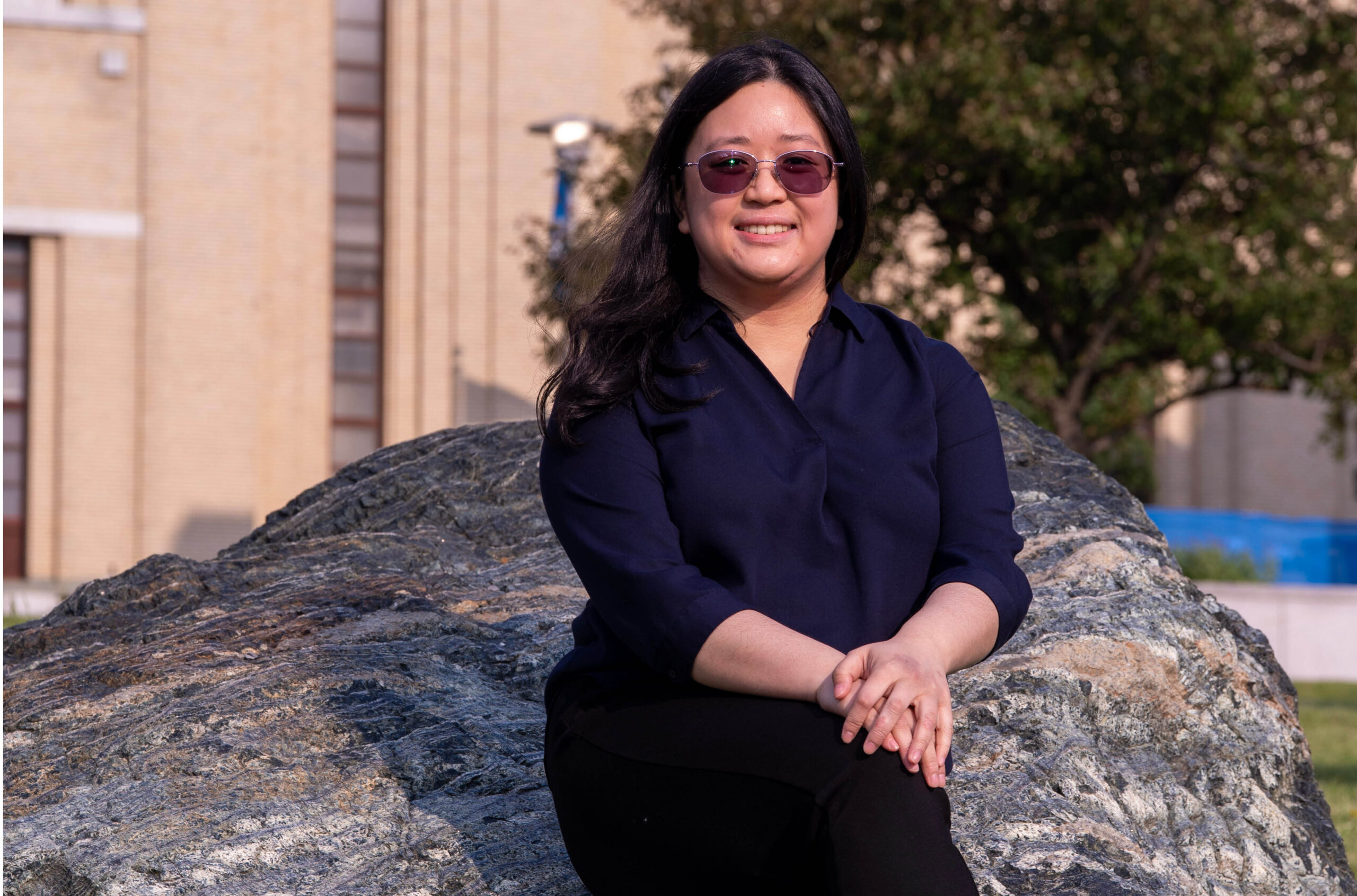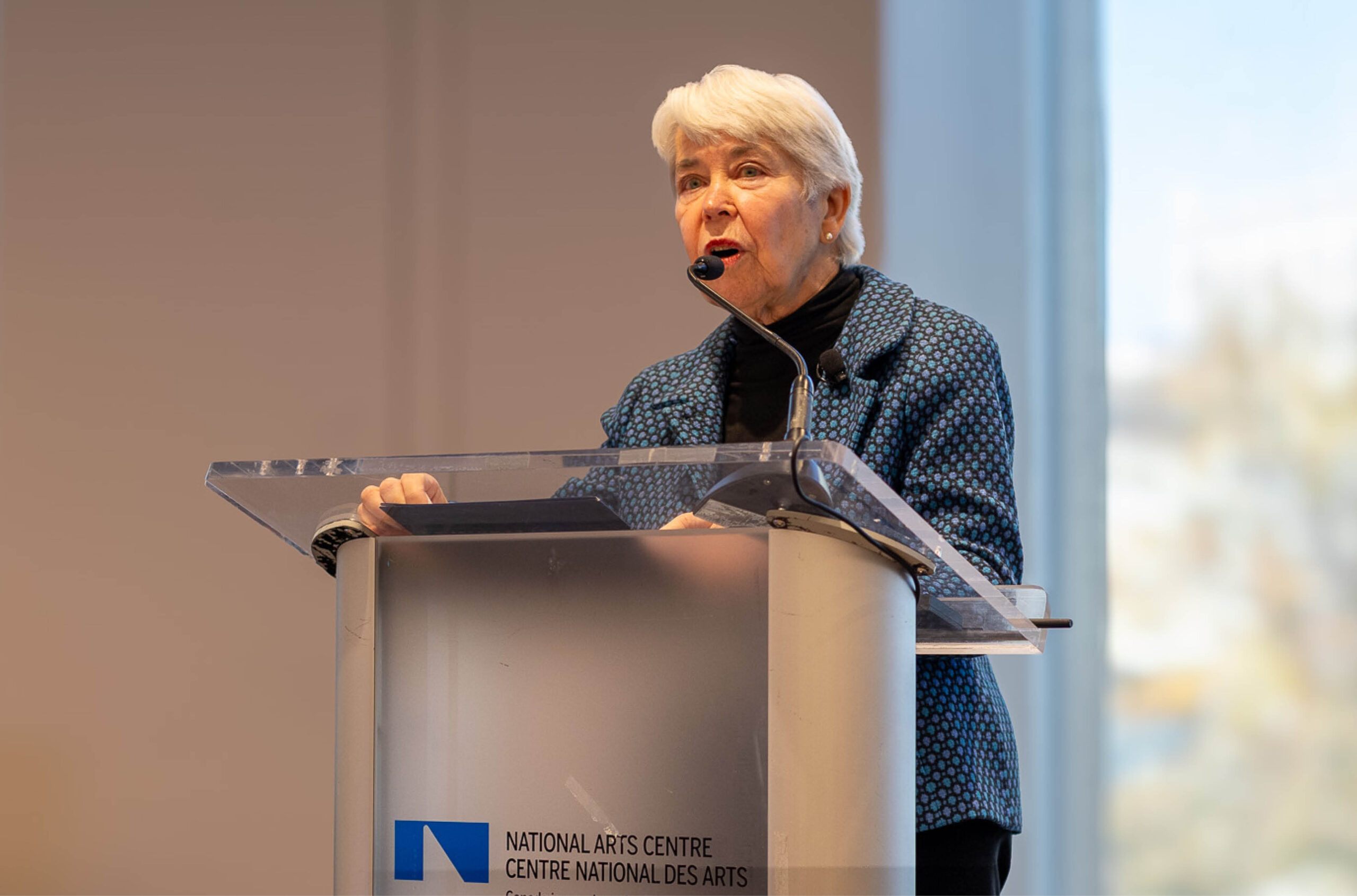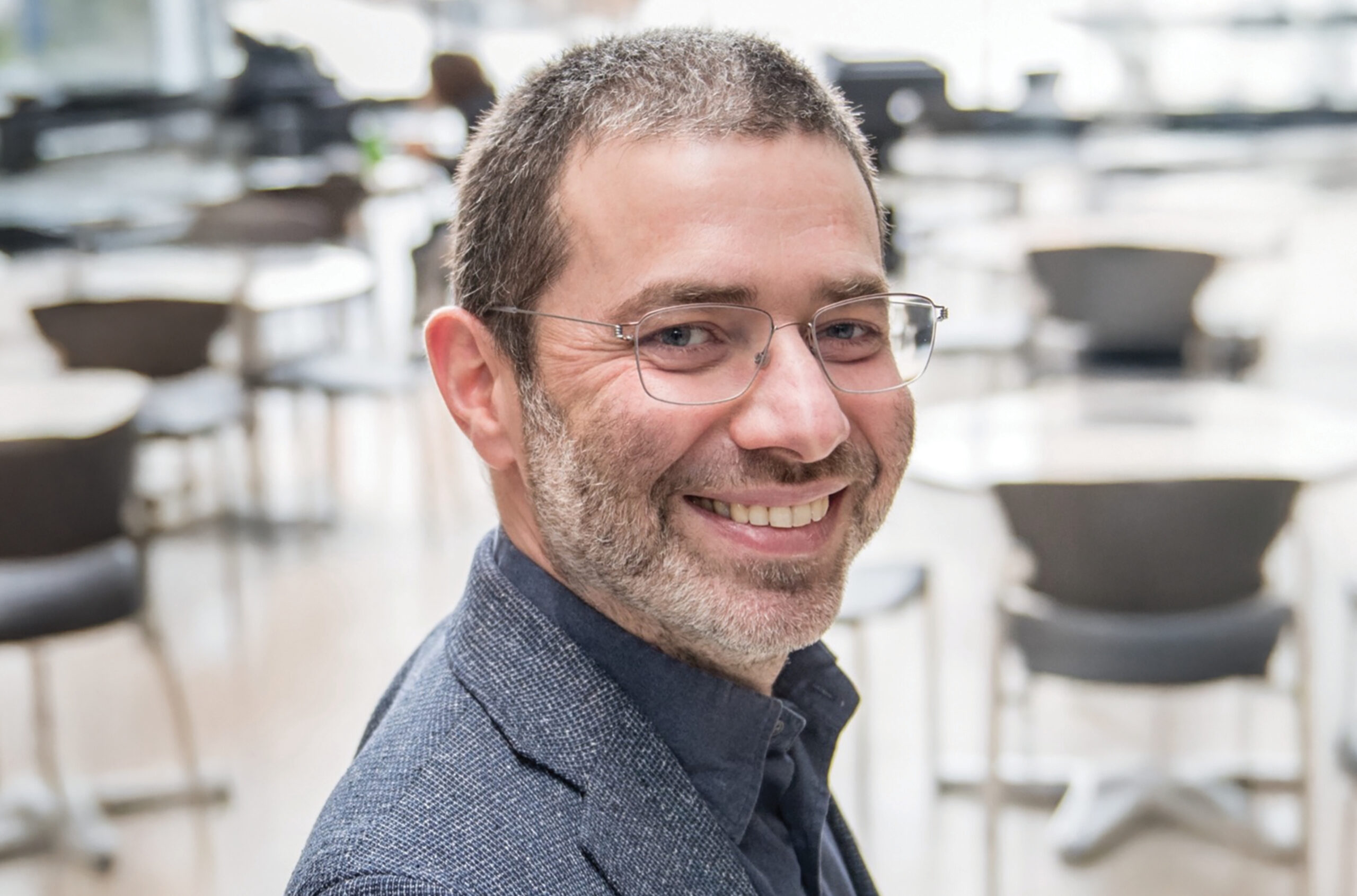The PhD conversion experience
On their way to graduation, PhD students become converts to the Church of Knowledge. But this secular church is in need of reformation.

The PhD is the most demanding program in the armory of university degrees. Doctoral students master a large body of knowledge, become expert in research methodologies (in the lab, the library, the studio, online and in the field), and pass comprehensive exams that test the breadth and depth of their knowledge.
Only then are they allowed to write their dissertation – a book-length work in the humanities and social sciences; shorter in the STEM disciplines, though just as demanding. Finally, they have to stand up for the dissertation they have written against a specially constituted committee of experts at a formal PhD oral defense.
The PhD is the only degree program that requires candidates to make a significant original contribution to knowledge. In other words, those who become PhDs must go beyond being excellent students – people able to absorb knowledge, write papers and pass exams. PhDs must master a field of learning and develop the requisite research skills so that they themselves are able to create significant and original knowledge.
In what follows, I want to argue that PhD candidates go through a conversion experience on the road toward graduation. The young researchers – converts to a life of ideas – are inducted into what we might call the Church of Knowledge. The great value and the deep problem of PhD education live in that conjunction of conversion and induction.
Why PhD grads want to stay in the university
Given how much time PhD students spend in the university, and in view of what they actually achieve on their way to graduation, it is no wonder that most of them want to live out their professional lives in the academy. According to a recent study, two-thirds of PhDs, across all the disciplines, want to become tenure-track professors.
Read also: Tracking humanities PhD outcomes: an update on the TRaCE Project
The desire of young researchers to spend their lives in the academy has become a chronic problem since only approximately 25 percent of PhD grads are able to secure permanent jobs as professors. A recently released study from TRaCE McGill found that of the 4,624 graduates (cohorts from 2008 to 2018) that we tracked, 54 percent work in the academic sector. That includes colleges and university research centres, as well as universities. But, only 1,071 – fewer than one in four – are in tenure-track university jobs.
According to one argument, the reason the graduates want to stay is that their graduate education simply fails to teach them how they could take their learning, and their research and teaching skills, to secure employment in sectors beyond the walls of the university. In the face of this failure, universities have developed practically-minded professional skills training programs where PhD students can pick up valuable know-how about project management, public speaking or professional networking. The many skills-training programs across the university system are worthwhile even though they tend to misrepresent skills as if they were a kind of currency that grads could acquire and then trade for advantageous employment opportunities in the wider labour market. But acquiring a skill is not like pocketing some money. To learn how to gather and analyze evidence in an archive in order to test a historical hypothesis, or how to do lab work toward the creation of a new vaccine, or even how to speak effectively to a public, non-specialist audience, is to undertake a process that can drive deep and durable transformations in one’s own personhood.
The desire of young researchers to spend their lives in the academy has become a chronic problem since only approximately 25 percent of PhD grads are able to secure permanent jobs as professors.
Universities are also adopting individual development plan (IDP) programs to help students map out their educational and career pathways. IDPs promote highly rationalized, practically-minded ways for PhD students to plan their way forward toward a multiplicity of career paths. The IDP for biomedical PhD students at Rutgers University is exemplary. It gives students a “structure to systematically identify training needs and competencies, establish goals and take stock of year-by-year progress.” The Rutgers IDP landing page tells students, “there are many career options for people who have obtained a PhD in the biological sciences. The IDP helps you plan and prepare for your post-PhD future while you are in graduate school.”
Again, there is much to praise about IDPs, except for what they leave out about the PhD. The IDP is of a piece with a very thin narrative about doctoral education. The narrative makes the PhD a longer and more multi-faceted degree than other degree programs, but no different from them in its basic character. And this kind of description of the PhD has become increasingly standard among those who are working to make things better for PhD students and grads.
Converting PhDs
The programs that are being developed to address the obstacles to career-readiness for PhD grads are certainly worthwhile, but I want to bring forward another way of thinking about the PhD – one that is rooted in the history of the university and that affords a more positive and a richer understanding of the changes young researchers go through. I want to suggest that understanding the conversional character of the PhD needs to become the cornerstone of all initiatives toward reform.
My argument that PhD students go through a conversion experience and are then inducted into a Church of Knowledge might make it sound like they are being seduced into some kind of cult. Indeed that is just how Andrew Marzoni described the academy in a 2018 piece in the Washington Post.
But while induction into the Church of Knowledge creates problems and even causes considerable suffering, conversion itself is nothing like becoming a member of a cult. Cults such as Nxivm or the Moonies prey on vulnerable recruits by inducting them into communities of people who all act, talk and think just the same. Cultists lose their independence and their individuality. Converts, it is true, often seek out the company of like-minded people, but their conversions emerge from intimate conversations with a figure of the divine (so Saul on the road to Damascus) or even from reading a wonderfully truthful text.
The heart of the matter is the transformative recognition of a higher order of truth about the world. This recognition can unfold over time or can happen in an instant. Martin Luther, in the first of the Ninety-five Theses, says that turning toward God is a life-long process: “When our Lord and Master Jesus Christ said, ‘Repent’ (Mt 4:17), he willed the entire life of believers to be one of repentance” (the Latin original “poenitentiam” means both penance and metanoia, that is, an inward change of mind or heart). Augustine in the garden in Milan, wracked by doubt and self-recrimination, just picks up the book that is lying on the bench where he was sitting a few minutes before and reads a verse from Paul’s Letter to the Romans. “I wanted to read no further,” he tells us, “nor did I need to. For instantly, as the sentence ended, there was infused in my heart something like the light of full certainty and all the gloom of doubt vanished away.”
Unlike Luther or Augustine, PhD graduates do not convert to religious faith. Instead, it is the rigorously researched, evidence-based knowledge about the natural and human worlds, and the excitement of discovering, testing and sharing that kind of knowledge, that transforms them. Eliza Bateman, to take one example, took a leave from her practice as a human rights lawyer to complete an MA in law at McGill. She was reading a required essay by legal theorist James Boyd White – it is a brilliant essay – when she suddenly realized how much she loved the life of ideas. She went on to complete a doctorate in civil law and is now senior research analyst at the Refugee Hub at the University of Ottawa. Doctoral conversion, on this account, does not cause people to lose themselves; rather, it is the process by which very many young people find out who they most authentically are.
The Reformation of the Church of Knowledge
The conversion of PhD students to a life of ideas is not the problem. It is indeed potentially a great gift for the graduates themselves and also for the larger world, especially since the world, facing massive political and environmental crises, needs the learning, energy and inventiveness of dedicated researchers across the disciplines now more than ever before. The heart of the problem is that the conversional process within the present academic culture seems also to bind young researchers to the university as if it were indeed a Church of Knowledge, a sanctified place from which they must not stray. How, I want to ask, did this dire situation come about?
Conversion is in the genes of the university. Universities in the West came into being in the 10th through the 13th centuries. They grew out of the practices of monastic education that served the conversion of secular men and women to lives of piety and poverty in monasteries and nunneries across Europe. Monastic conversion, by the way, was largely a formal ritual rather than an inward transformation of the mind, which is what it had been for Augustine and would become more generally in later centuries. The so-called studia generalia created to enrich monastic training evolved into guild-like companies of scholars and teachers in cities such as Bologna and Paris; then, finally, the companies of scholars and teachers crystallized into self-governing institutions able to confer academic degrees in disciplines such as theology, medicine and law. The papacy provided the charters that underwrote the powers of self-government for the majority of the more than 80 universities operating by the time of 16th century.
What can be done now to improve the prospects and lives of PhD graduates?
But universities, especially since the global expansion of the German-model research university in the 19th and 20th centuries, have turned inward and have become cut off from the larger world to a degree far greater than is the case for the Catholic or any of the Protestant churches. The churches, after all, are committed to bringing people of all kinds to what they deem to be the true faith, so they are bound to maintain robust connections with the larger world. It is deeply ironic that so many modern PhD grads – converts, not to faith, but to the transformative power of knowledge – have come to resemble their monastic forebears in that they are seemingly bound to a life of poverty and piety within the walls of the monastery-like institutions of higher learning.
What can be done now to improve the prospects and lives of PhD graduates? Initiatives such as the professional skills-training programs and the IDPs are well-meaning and worthwhile, but neither of them starts where it should start, which is by addressing the PhD grads’ right to live and grow as the kind of people they have become by virtue of their work as doctoral students. Not only do these initiatives do nothing to change the institution of the university itself, they also tend to flatten out precisely what the grads have come to value about themselves – their new skills as researchers and teachers, and their dedication to discipline-specific ways of telling the truth about the natural world and the world of human culture and history.
In order to honour the PhD grads’ right to flourish, the university needs to undertake a large-scale transformation of itself. This might not be as crazy an idea as it sounds at first. The Reformation of the Church of Knowledge is in fact already moving ahead, in the form of collaborations among the sciences, medical sciences, engineering and industry; the many public humanities projects; the socially creative work of sociologists and anthropologists; and the increasing rate of publication of all kinds for readers and interlocutors outside the academy. If we can draw together all these initiatives across the university system, we can begin to fashion a new knowledge ecology around universities as the hub. Within this expansive working space, funded by the universities, governments, foundations, industry and public agencies of all kinds, PhD grads could do the work they have trained so hard to do, mobilize their knowledge and research skills across multiple sectors of work and action, contribute in manifold ways to the public good, and never have to leave the sanctified place where they feel they most belong because that place has pushed out its walls and become part of the larger world.













Post a comment
University Affairs moderates all comments according to the following guidelines. If approved, comments generally appear within one business day. We may republish particularly insightful remarks in our print edition or elsewhere.
10 Comments
Thank you for this excellent piece. No argument from me, and I think that European universities, with their many research-intensive institutes, tend already to be far ahead of Canadian ones in this regard. The hurdle to be overcome is the funding model. Ours (at least in Ontario) is tied almost 100% to the university’s teaching mission, a combination of tuition fees and provincial government grants tied to active enrolments. Hence the mad scramble to secure research funding independent of those sources. But it is going to be an exceptionally hard sell to governments and taxpayers in this country, who tend to think of universities as places of teaching and not research. The space issues alone are a bit mind-boggling.
I appreciate what Dr. Yachnin is saying about PhD-grad, university culture needing to change, but I’m not holding my breath! Do people in higher education positions of academic or administrative power actually care what happens to the 75% (or more) of us who don’t end up in tenure-track academic positions? I’m originally from a rural, farming-community area near Kitchener-Waterloo, Ontario and am the first member of my family to get a university degree (BA, Waterloo, 1989), not to mention two master’s degrees (MA, Toronto, 1991 and MLIS, Western, 2018), an IT Certificate (Conestoga College, 2010), and a PhD (in Musicology, UCLA, 2003). I no longer make sense in my community of origin, in academia, or anywhere else. Disenfranchised academics often feel like they’ve experienced a variation of Stockholm Syndrome, identifying with their “captors” and not really being able to escape.
After about eight years (2001-2008), I abandoned my meagre existence on the temporary/adjunct conveyor belt, on which I developed and taught 31 sections of 22 different university courses all across North America. I attempted to supplement those activities with additional, vaguely-related, part-time work in choral singing and reference writing. Then, I ended up going back to school two more times (hey, I’m good at it!), but I also went through bankruptcy and lived on welfare for quite a few years. Now, at 55, I still earn barely above minimum wage as a computer technology, e-commerce, order support specialist. I have also (probably stupidly, given the zero-to-minimal income involved) researched and written two published “public musicology” books, co-edited and contributed three chapters to a third book, plus additional book chapters, academic journal articles, book and media reviews, and numerous reference articles and program notes. I’ve also presented dozens of scholarly conference papers (and some invited talks) and produced websites and web content, including instructional videos in my field.
My own research suggests that in my field of musicology, only about 20% of PhDs end up in tenure-track positions. On top of that, there are very few post-doctoral fellowships and almost no living-wage, full-time, “alternative academic” possibilities. From my own, very-highly-ranked, doctoral program at UCLA, the non-academic-employed scholars among its PhD grads since the early 1990s also include: music performers, private studio instructors, ensemble conductors, library employees, university administrative workers, an airport retail store manager, an instructional web designer, a music software employee, a freelance political journalist, a visual artist, a dog trainer, a legal secretary, a private music school founder, and an airport courier company cargo employee. Other musicology PhDs I know of from other programs work as school bus drivers, real estate agents, and yoga instructors.
Academia needs to do much better to support people who invested many years becoming scholars. Academic publishing, conference presentations, and instructional web content are three areas that should be fundamentally re-worked to make it possible for PhDs without conventional academic jobs to make at least some income by participating in them. One cannot live on adjunct scraps alone.
The author makes a number of valid points. I agree with what he says. What is depressing, however, is that none of this is new. Academics, for the most part, have no frame of employment reference that extends beyond academia. Ph.Ds who fail to get a job in academia are left casting about for part-time employment in different universities. I’m very thankful that over 20 years ago I turned down a sessional appointment at a university and, with Ph.D. in hand, I enrolled in a B.Ed. program. This led to years of steady, full-time employment with a pension, benefits, and a good salary. It hasn’t prevented my research and writing, although having a job that requires me to be at work Monday to Friday from 7:00 to 4:00 does cut into my writing time.
I think universities would do well to start hiring professors who have worked outside academia. With all the (much needed) talk about diversity there is perhaps a need to consider hiring people who have employment diversity. Imagine hiring a university professor who has worked at a different job (or two) for 10 or 15 years before they teach and research at a university. They would be able to bring that experience into the classroom and show students how their degrees have applicability outside the university. Imagine the new ideas their experience would bring to their research program.
Hear, hear. Imagine if, just for a moment, all the attention paid to “intersectionality” actually included one of its key analytic terms — CLASS — instead of just socially-determined, embodied characteristics that are increasingly understood as “identity essentialisms” (race, gender, disability). The absolute failure of universities to consider CLASS as part of its “diversity” mandate reveals that said mandate is just the usual neoliberalism in sheep’s clothing, putting all the emphasis on the individual rather than the social conditions of inequality.
thanks for this comment, John. Of course, I agree with you about the practical challenges facing any attempt to develop in fact what we have been calling a knowledge economy. There are perhaps three reasons to push hard toward this kind of rethinking of the place of the universities. One is that there is already a lot of work going on that is pushing out the walls of the universities. I mentioned some of it in my piece. Two is that the federal gov’t says it wants to see Canada move forward toward a knowledge economy. Three is simple: we have to pull together all our research resources–across the disciplines–if we are going to stand a chance of undoing the great harm we have already done to the planet.
Dear Durrell, Thank you so much for sharing your story. It has bee tough indeed for you. I do think that many inside the academy are waking up to kind of career hardships you’re talking about and who are working assiduously to introduce reforms. I see with great sadness and distress that a number of top-ranked humanities PhD programs in the USA have suspended recruitment on account of the dire state of the academic job market. But as you know feelingly, the academic job market has been dire for many decades. I guess what i want to say is that there is a world for talented teachers and researchers outside the academy, that the world needs them, and that we inside the academy need to work to discover and even help create career pathways beyond the academy.
Dear Alastair, thank you very much indeed for your comment and your account of your career. i think we need to think about career diversity as one important criterion for employment and also when we are recruiting new PhD students.
If the world outside the academy needs talented teachers and researchers, why do so many PhDs end up working at any number of jobs having nothing to do academia? I just don’t see it, so my field (musicology) must be one of the worst.
WIth the other commentators, I also appreciate this unique approach to a well-rehearsed problem, especially its governing metaphor of conversion. However, it omits what for me was the reason I pursued graduate education and wanted to stay on campus afterwards: simply put, I wanted not only to research but to teach. The experience of giving several lectures while an undergrad TA at my small alma mater (which allowed for that sort of thing) was my conversion experience: from there on, I wanted not only to acquire knowledge or produce knowledge but to find ways to compellingly communicate its content and significance to others. I know that among my fellow academics, I am not alone in this. If one’s desire is to teach at the highest level, there simply are not many venues beyond the university in which to do that.
On a loosely related note, the fact that many PhDs cannot find secure teaching positions has many causes, but in Canada, I think that a significant one is that the vast majority of our universities are large research schools. We have no equivalent to the Americans’ sprawling network of teaching-focused undergraduate colleges that employ many more full-time professors per student than do research universities. There’s almost no way this will change, of course (witness Quest University in BC), but had provincial charters and funding in the middle of the 20th century not favoured the amalgamation of smaller colleges into larger universities, we might not be in quite the same position.
But again, thanks for the thoughtful article.
Universities are concerned that professor from industry may have competitive research program, making it difficult for them to procure funding and salary support. Governments can help by making a specific funding envelope for these folks. At least in the US they have the SBIR and STTR programs which are geared towards industry related research. I wish we had those in Canada! Another approach could be to develop a series of career compendiums. Many students struggle with wayfinding. They understand academia and how competitive it is. However they don’t know where to start in the non academic world. What students need are discipline specific guides that can help them to see the jobs that they can pursue, so that they can imagine themselves in different roles. I have been doing this for several years in Medical Science at the University of Calgary.